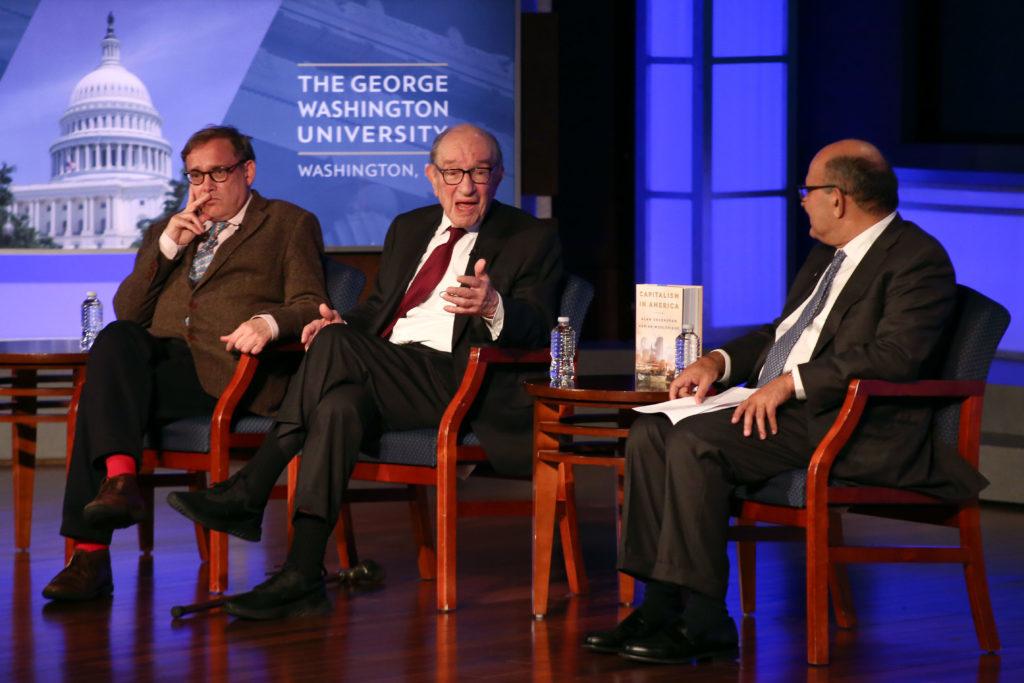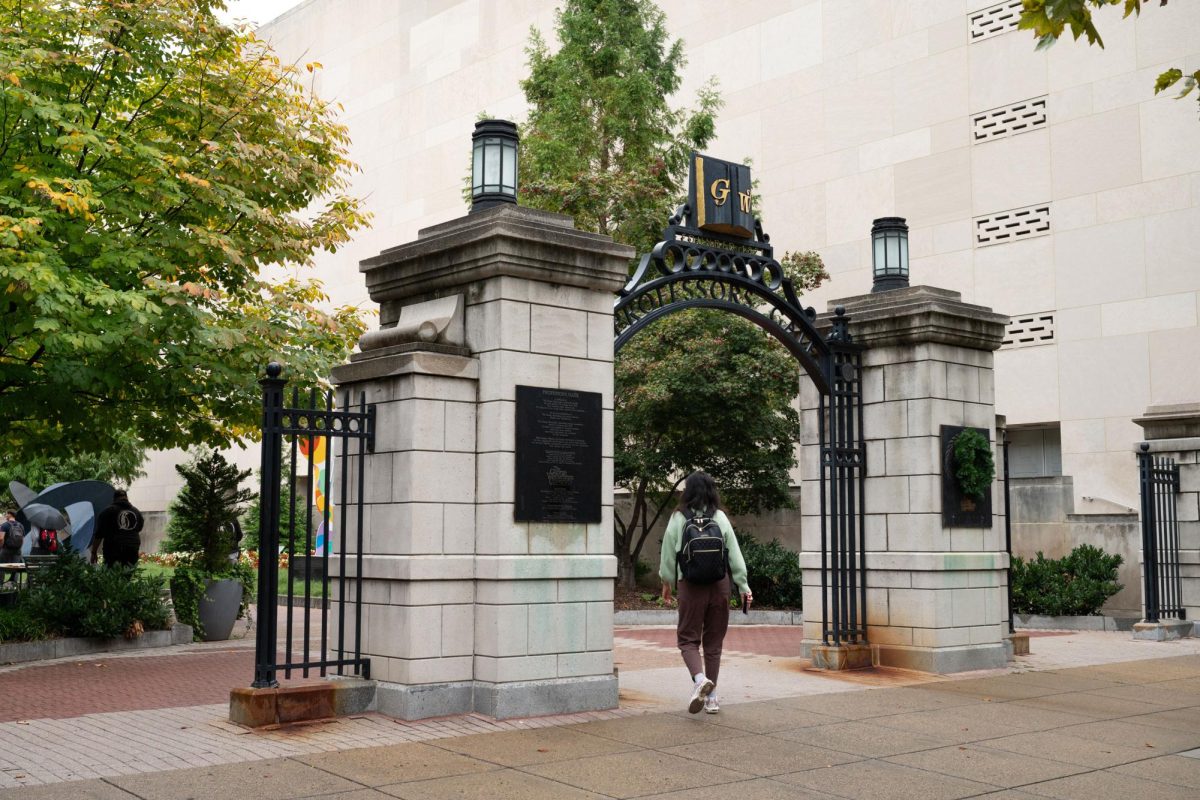A former chairman of the Federal Reserve Board of Governors and The Economist’s political editor discussed lessons from their new book on capitalism at Jack Morton Auditorium Tuesday.
Alan Greenspan, the former Federal Reserve chair, and Adrian Wooldridge, who authors The Economist’s “Bagehot” column, sat down with author Liaquat Ahamed to discuss the duo’s new book, a history titled “Capitalism in America.” At the event, which was organized by independent bookstore chain Politics and Prose, Greenspan and Wooldridge traced an economic history of the United States from its founding to the era after World War II.
Wooldridge said the book begins by imagining a meeting of the greatest countries in the world in 1618, where the nations must determine which country will become the dominant power of the next four centuries. He said that while nations like China, Turkey, Spain and the United Kingdom had good cases, no one would have mentioned the United States.
“It’s not even an afterthought in civilized discourse at the time,” he said. “It’s just a collection of isolated colonies hanging on the edge of the world.”
Wooldridge said the book argues that the United States’ tremendous growth over its history is the result of its highly productive economy. This productivity, he said, was a consequence of “creative destruction,” a theory pioneered by economist Joseph Schumpeter dictating that poorly performing sectors of the economy will go out of business and give way to more productive ones.
Wooldridge attributed America’s predisposition toward creative destruction to its size, its constitutional protections of property rights, its attitude toward corporations and its reverence for innovators and businessmen – all of which were different from European countries.
“America has an appetite for business,” he said. “It treats entrepreneurs as heroes. In Britain, we like landed gentry. In France, they like bureaucrats and intellectuals. In Germany, they like scholars. America has a business culture.”
Greenspan – whose tenure as chairman of the Federal Reserve spanned 19 years, from 1987 to 2006 – said creative destruction, while beneficial in the long run, harmed workers in the process. He offered the example of Henry Bessemer, a businessman whose cheaper method of producing steel displaced factories in English cities.
“Essentially, in that process, you lose a lot of people’s well-being and jobs,” he said. “For example, if you’re going to produce Bessemer steel, all the people who were involved in a lesser product, such as Sheffield steel, are out of work.”
Greenspan said the desire for populism – support for the concerns of ordinary people – was evidenced through President Donald Trump’s election in 2016. But he said populism isn’t a coherent ideology – rather, it is a product of slow economic growth over the past few years, he said.
“Populism is not a philosophy,” he said. “Capitalism is a philosophy. Socialism is a philosophy. Communism is a philosophy. Populism is a cry for help – someone save me.”
Greenspan said populist policies, like Trump’s trade war with China, stifle economic growth. He described trade wars as “a question of who loses the least.”
“There are only losers, but there are some who lose less than others, who then claim they won the war,” he said. “No one wins a tariff war.”





